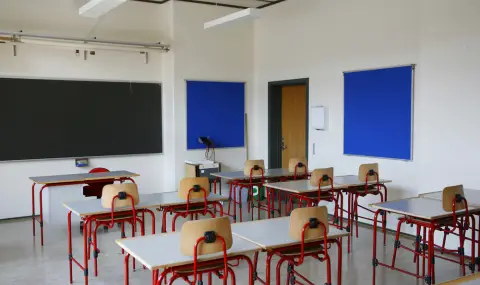For 13-year-old Lina from Copenhagen, the alarm clock has been ringing later for a year now - the seventh-grader now starts school not at 8:00, but at 9:15. And she is not the only one.
At her school, grades seven through nine are testing a later start time for classes. Lina and most of her classmates are delighted: "It's great that the lessons start later, because that way we can sleep a little more. I think it makes me more concentrated, so I learn more," the student told German public media ARD.
"Less stress and nerves"
Not only students are happy with the new concept. The school's principal, Kenneth Hallgren, says that in the past, when school started earlier, teenagers were only physically present for the first hour - their brains were still asleep. It was very exhausting for the teachers, assures the director quoted by the German media.
Today is different: "Students are much more rested when they come to school - they are not stressed, tired and frowning. They talk to each other more intensively and are in a good mood. And this makes the lessons more enjoyable, says Halgren.
A total of twenty schools in Denmark are experimenting with the later start of classes. They argue with research, according to which the hormonal balance in young people is such that they simply need more time to wake up in the morning.
The role of cortisol
Researcher Katrin Wimmelmann from the Center for Child Health in Copenhagen explains: "Before we wake up, we release cortisol, also called the stress hormone, which wakes us up and prepares us for the day. In teenagers, this hormone is released later." The bottom line: adolescent brains function better when activity starts later in the day.
Although they start an hour and 15 minutes later, classes end at the same time as before, explains Principal Kenneth Hallgren. Two teachers take over the lessons so students learn the same things but in less time. The children, teachers, and parents are satisfied with this, it is said further in the ARD report. "Our studies show that less learning is not the result of reduced class time. And the students feel much better, which for us is the most important thing in this case," says the school director.
The experiment in his school is possible because it is a private educational institution. Public schools in Denmark are not allowed to shorten the school day just like that. Starting this school year, however, several public schools are also trialling the later start time of classes.
In the beginning, there were also worried parents, admits school director Kenneth Halgren. They feared that since they were leaving early for work, their children would have to get ready for school on their own in the morning. However, Kenneth Hallgren sees this as something positive - according to him, this is how adolescents learn independence.
"The concept works great"
Because of all the positive effects of the experiment, Kenneth Hallgren's school wants to keep the concept for now. "I can't imagine going back to the previous model. The new concept is working great, especially in terms of how the students feel and how they interact with each other. And this is one of the most important prerequisites for them to learn something", the school director is convinced.
It seems that, at least at this Danish school, teenagers' alarm clocks will continue to ring later.
Author: Julia Weschenbach (ARD)
